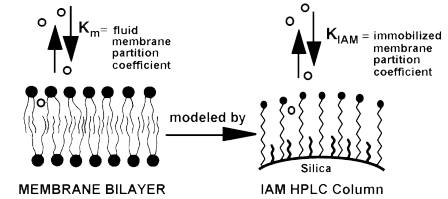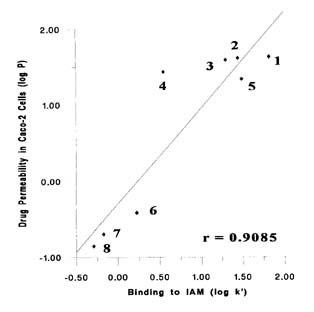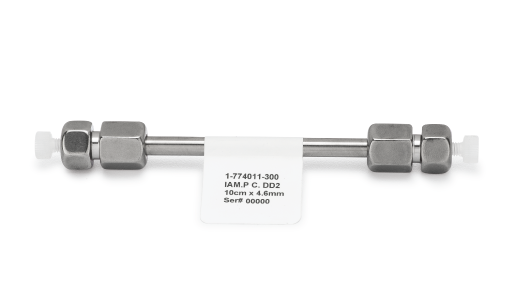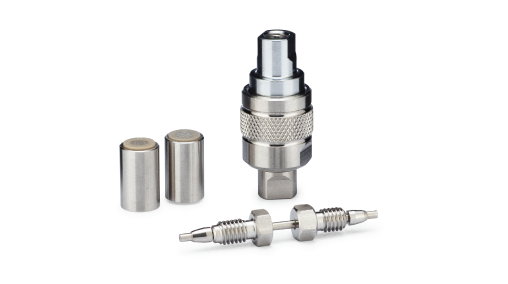The Immobilized Artificial Membrane (IAM) Column is an ideal tool for high throughput prediction of drug membrane permeability. The results from this column correlate well to traditional in-vitro methods such as intestinal tissue and Caco-2 Cells, yet are faster and cheaper to achieve.
Phosphatidylcholine (PC) is the major phospholipid found in cell membranes. lAM chromatography phases prepared from PC analogs closely mimic the surface of a biological cell membrane. Consequently, IAM phases display a high affinity for membrane proteins and are useful in membrane protein purification and in the study of drug-membrane interactions.

The IAM surface is formed by covalently bonding the membrane-forming phospholipids to silica. The results from the IAM column correlate well to traditional in vitro methods such as intestinal tissue and Caco-2 Cells, yet are faster and cheaper to achieve.
Other phases such as ODS silica, for example, retains analytes solely on the basis of hydrophobicity. IAM more closely mimics the interaction of analytes with biological membranes, where a combination of hydrophobic, ion pairing and hydrogen bonding interactions are possible. This combination of interactions measured by the IAM column is known as phospholipophilicity. These advances have led to the development of several new IAM phases used for predicting drug membrane permeability-the IAM.PC.DD2 and the IAM Fast-screen Mini Column.

The traditional means of predicting permeability includes use of Caco-2 cell line cultures, intestinal tissue or liposome assays. These are laborious and costly to perform. Data obtained from the IAM Columns correlates well to data obtained from traditional assays.
Immobilized Artificial Membrane Columns: An Advanced Tool for Drug Discovery
IAM columns can be utilized as a vital tool for Drug Discovery and Lead Optimization groups to identify which drugs will be good New Drug Candidates, which can have a direct impact and NDCs speed to market. Watch the video presented by Klara Valko, Director of Bio-Mimetic Chromatography to learn more.


